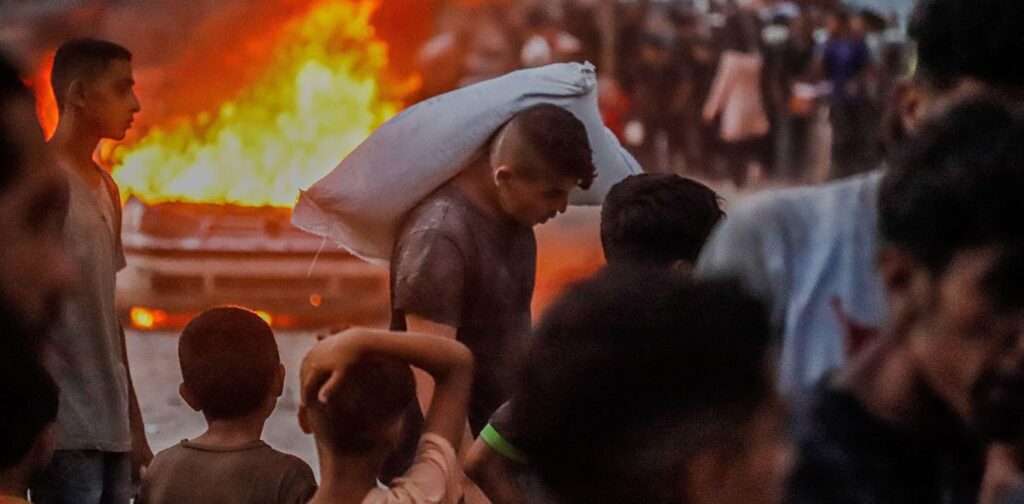
A new vision for Middle East peace emerged this week, proposing the withdrawal of Israel from Gaza and the West Bank, the disarming and disbanding of Hamas, and the creation of a unified Palestinian state. This plan was unveiled at a high-level conference in New York on July 29, which brought together representatives from 17 states, the European Union, and the Arab League.
The proposal is described as “a comprehensive and actionable framework for the implementation of the two-state solution and the achievement of peace and security for all.” Signatories include Turkey and Middle Eastern states such as Saudi Arabia, Qatar, Egypt, and Jordan. Europe was represented by France, Ireland, Italy, Norway, Spain, and the UK, while Indonesia, Senegal, and Brazil, Canada, and Mexico represented Asia, Africa, and the Americas, respectively. Notably, neither the US nor Israel participated in the conference.
Arab States’ Bold Move
Significantly, this marks the first time Arab states have called for Hamas to disarm and disband. While the document condemns Hamas’s attack on Israel on October 7, 2023, and recalls that taking hostages violates international law, it also firmly connects the establishment of a Palestinian state with ending Israel’s assault on Gaza’s civilians.
“Absent decisive measures toward the two-state solution and robust international guarantees, the conflict will deepen and regional peace will remain elusive.”
The plan includes a proposal for the reconstruction of Gaza, to be developed by the Arab states and the Organisation of Islamic Cooperation, supported by an international fund. The details will be further discussed at a Gaza Reconstruction and Recovery Conference in Cairo.
Momentum for Recognition of Palestinian Statehood
The announcement comes as momentum builds for recognizing the state of Palestine as part of a comprehensive peace plan leading to a two-state solution. France, the UK, and most recently, Canada, have announced their intention to take this step at the UN General Assembly in September. The UK has stated it would proceed with recognition unless Israel agrees to a ceasefire and the commencement of substantive peace talks.
These announcements follow similar commitments made in May 2024 by Spain, Ireland, and Norway. By the end of September, at least 150 of the UN’s 193 members are expected to recognize Palestinian statehood. Although recognition is largely symbolic without a ceasefire and Israeli withdrawal from Gaza and the West Bank, it remains essential symbolism.
For years, many European countries, Canada, Australia, and the US have said that recognition could not be declared if there was the prospect of Israel-Palestine negotiations. Now the sequence is reversed: recognition is necessary as pressure for a ceasefire and the necessary talks to ensure the security of both Israelis and Palestinians.
Challenges Facing the Peace Plan
Israel accelerated this reversal in March when it rejected the scheduled move to phase two of the six-week ceasefire, negotiated with US assistance, and imposed a blockade on aid entering the Strip. The Netanyahu government continues to resist a ceasefire, but its loud blame of Hamas is becoming increasingly difficult to accept. The images of starvation in Gaza and warnings from doctors, humanitarian organizations, and the UN of an effective famine with thousands of deaths can no longer be ignored.
Saudi Arabia and Qatar have been encouraging European countries to recognize Palestinian statehood, both behind the scenes and through their embassies. Their efforts at the UN conference in New York this week are another front in that campaign.
US and Israeli Response
In the short term, there is little prospect of the Netanyahu government relenting in its military actions, let alone entering talks for two states. Notably, neither Israel nor the US participated in the conference. Former President Trump has criticized the scenes of starvation in Gaza. However, his administration joined Netanyahu in sharply criticizing France and the UK over their intentions to recognize Palestine. The US president has also warned Canadian Prime Minister Mark Carney that recognizing Palestinian statehood could threaten Canada’s trade deal with the US.
In response to Trump’s concern over the images of starving children and his exhortation “We’ve got to get the kids fed,” Israel has airdropped a few pallets of aid – less than a truck’s worth. Yet this appears more of a public relations exercise directed at Washington than a genuine attempt to ease the terrible condition on the Strip.
A small number of lorries with supplies from UN and humanitarian organizations have also crossed the border, but only after lengthy delays and with half still held up. There is no security for the transport and delivery of aid inside Gaza.
Long-Term Implications
The conference declaration is not immediate relief for Gaza but another marker of Israel’s increasing isolation. After France’s announcement, the Netanyahu government stated: “Such a move rewards terror and risks creating another Iranian proxy … A Palestinian state in these conditions would be a launch pad to annihilate Israel.”
While recognizing Hamas’s mass killing on October 7, 2023, most governments and their populations do not perceive Israel as solely targeting Hamas and its fighters. Instead, they see the Netanyahu government and Israeli military as slaying and starving civilians.
In a Gallup poll taken in the US and released on July 29, only 32% of respondents supported Israel’s actions in Gaza – an all-time low – and 60% opposed them. Netanyahu was viewed unfavorably by 52% and favorably by only 29%.
Israel’s moment of “normalization” with Arab states has been lost. Its economic links are strained, and its claim to being the “Middle East’s only democracy” is increasingly questioned.
This offers little comfort to the people of Gaza facing dire conditions. However, in the longer term, there is the prospect that this sacrifice will catalyze the recognition of Palestine, a state that vanished in 1948.





